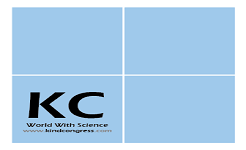
12th International Conference
ON
Food Science & Nutrition Technology
Event Date
November 15-16, 2024
Venue
London, UK
– Previous Conference Performers / Professionals From Around The Globe –

Ahmed Ali
- Diyala University, Iraq

Aikaterini Ziaka
- Physio4you, Greece

AMR Hawal
- Professor, Prime Healthcare Group UAE

Antonio Steardo
- University of Salerno, Italy

Ashraf Lotfy Fayed
- ENT Military Hospital, Egypt

Aspazija Sofijanova
- Director of Pediatric Clinic, Macedonia

Brandon P. Lucke-Wold
- University of Florida, Florida

Brankica Vasiljevic
- NMC Royal Hospital, UAE

Bruce Ogden
- Director of Operations US Foods USA

Cornelia Beyer
- University of Hull, UK

Gabriela Barsov
- Macedonia

Grazzia Rey
- University of the Republic, Uruguay

Hadi Salloum
- UAE

Heather Carmello
- University of Rochester, USA

Howard Weber
- Penn State Hershey Childrens Hospital, USA

Ilknur AydınAvci
- Turkey

Irene Hamrick
- University of Cincinnati, USA

José De Jesús Curiel Valdés
- Clínical Patology, Mexico

Lloyd L. Tran
- Biomed Industries, USA

Luca Roncati
- University Hospital of Modena, Italy

Mahmoud Al Cheikh Ahmad
- UAE

Maria Braoudaki
- University of Hertfordshire , United Kingdom

Marina F Gubkina
- National Research Medical University, Russia

Muhamad Akhal
- UAE

Peter Krcho
- Pavol Jozef safarik University, Slovakia

Pinghong Zhou
- Fudan University, China

Raffaele Pilla
- University of Salerno, Italy

Ruut Veenhoven
- Seres Therapeutics, United States

Said Moustafa M. El-deib
- Yas Clinic Khalifa City UAE

Sajidxa Marino
- Central University of Venezuela, Venezuela

Sajidxa Marino
- Central University of Venezuela, Venezuela

Sam Vaknin
- Southern Federal University, Russia

Sandra Vélez Candelario
- Catholic University of Puerto Rico, USA

Simon Treissman
- Royal Inland Hospital, Canada

Taylor Bean
- Salmon Arm, Canada

Thiago Hoesker
- Neuro surgeon , Brazil

Tracy Roake
- Danat Al Emarat Hospital, UAE

Vladimir Zajac
- Cancer Research Institute, Slovakia

William J Rowe
- Specialist in Medicine, USA

Yu You Liu
- National Chung Hsing University, Taiwan
Media Partners/Collaborator
A huge thanks to all our amazing partners. We couldn’t have a conference without you!










Sponsors/Exhibitors
A huge thanks to all our amazing partners. We couldn’t have a conference without you!


About Conference
Welcome to Food Science 2024, where speakers, delegates, moderators, and researchers from across the globe convene for the 12th International Conference on Food Science & Nutrition Technology. Taking place in London, UK from November 15-16, 2024, our focus is on “Sustainable Food Systems for the Future”.
At Food Science 2024, we aim to facilitate the exchange of research, critical reviews, and discussions on the latest advancements in Nutritional Science, Immunology & Food Allergies, Food Toxicology, Food Engineering & Technology, Human Nutrition, Foodomics & Nutrigenomics, and Food Additives. Our program includes keynote presentations, oral talks, poster presentations, and exhibitions.
This conference serves as a global platform for professors, deans, academic researchers, industrialists, nutritionists, dieticians, doctors, young scientists, students, delegates, and health professionals to share the latest advancements in food science, nutrition, and health. Join us at Food Science & Nutrition conference to collaborate, learn, and contribute to the advancement of our field.
Why to Attend ?
The Food Science 2024 presents an exceptional opportunity to engage with participants from various associations such as Food Science and Nutrition associations, Food & Nutritional Sciences Associations, Food Chemistry & Biochemistry Societies, and Food Science Academicians. Our primary focus is on unlocking your potential through comprehensive knowledge of food & nutrition and other relevant aspects of Food Sciences, while also fostering the initiation of new assessments and technologies, and evaluating the effectiveness of various regulatory programs on Food Science & Nutrition.
Food Science-2024 aims to facilitate presentations, knowledge sharing, meetings with potential and eminent scientists, and recognition at this two-day event. Our goal is to bring together communities and create a platform for the exchange of information on technological advancements, new scientific innovations, and the effectiveness of regulatory programs in the realm of Food Science Conference.
This conference serves as a premier technical forum for expressing and acquiring knowledge about advanced research and developments, exploring new applications and technologies, and identifying emerging trends in the field of Food Science and Nutrition.
Nutrition, the science and study of interactions between living organisms and the substances they consume for health maintenance, involves processes such as ingestion, digestion, absorption, transport, assimilation, and excretion of nutrients from food. Its objective is to comprehend how various nutrients impact bodily functions, growth, development, and maintenance.
Macronutrients such as carbohydrates, proteins, and fats are crucial for providing energy, building and repairing tissues, and supporting vital bodily functions. Micronutrients like vitamins and minerals play essential roles in various biochemical processes and overall health. Water is vital for digestion, nutrient transport, temperature regulation, and waste elimination, while dietary fiber aids in digestion and prevents constipation, found in fruits, vegetables, and whole grains.
Food Science encompasses a multidisciplinary approach involving the study of the physical, chemical, biological, and engineering properties of food. It applies this knowledge to food production, processing, preservation, quality assurance, and distribution. This field integrates principles from biology, chemistry, physics, microbiology, and engineering to enhance food safety, quality, and nutritional value.
Key areas of Food Science include Food Chemistry, which examines the composition and properties of food components, Food Microbiology, focusing on microorganisms’ roles in food spoilage, preservation, and foodborne illnesses, and Food Engineering, applying engineering principles to optimize food processing, packaging, and storage for improved efficiency, safety, and quality.
Sessions and Tracks
Track 1: Nutritional Epidemiology: This track delves into the intricate relationship between diet and health through the lens of epidemiological research. Attendees will explore innovative methodologies and findings in understanding how dietary patterns impact chronic diseases like cardiovascular issues and diabetes. Discussions will revolve around the role of dietary interventions in disease prevention and management, with a focus on translating research into practical dietary recommendations. Nutritional biomarkers and large-scale epidemiological studies will be examined to provide insights into assessing nutritional status and its profound implications on health outcomes.
Track 2: Nutraceuticals and Functional Foods: The evolution of nutrition beyond mere sustenance is highlighted in this track, which focuses on nutraceuticals and functional foods. Attendees will explore how bioactive compounds and specially designed food products contribute to health benefits beyond basic nutrition. Discussions will revolve around the development, efficacy, and impact of these innovative food items on public health and wellness. From examining sources of bioactive compounds to assessing the environmental sustainability of functional foods, this track provides comprehensive insights into the cutting-edge advancements in the field.
Track 3: Maternal and Child Nutrition: This track addresses the critical aspects of maternal and child nutrition, emphasizing its profound impact on lifelong health. Attendees will delve into prenatal nutrition’s role in fetal development and maternal well-being, alongside discussions on breastfeeding as the gold standard for infant nutrition. Strategies to combat childhood obesity and malnutrition, including school nutrition programs and public health initiatives, will be explored. With a focus on early childhood nutrition, this track aims to equip attendees with insights into optimizing nutrition for mothers and children, ensuring better health outcomes.
Track 4: Food Processing and Preservation: Exploring the backbone of safe and nutritious food availability, this track delves into the latest advancements in food processing techniques and technologies. Attendees will examine methods such as high-pressure processing and freeze-drying, which extend shelf life while maintaining nutritional quality. Discussions will encompass applications, benefits, and safety considerations of these techniques, showcasing their transformative potential in the food industry. From fermentation to innovative preservation methods, this track offers insights into ensuring food safety and quality through cutting-edge technologies.
Track 5: Food Packaging and Sustainability: This track spotlights the crucial role of sustainable food packaging in reducing environmental impact and food waste. Attendees will explore innovations in packaging materials and practices, emphasizing their role in preserving food freshness and minimizing waste. Discussions will revolve around biodegradable, compostable, and recyclable packaging options, aligning with consumer preferences for eco-friendly solutions. Strategies for clear and informative food labeling will also be addressed, emphasizing their significance in empowering consumers to make informed choices while enhancing sustainability across the food supply chain.
Track 6: Food Safety and Quality Assurance: Ensuring the safety and quality of our food supply is paramount, as discussed in this track. Attendees will explore best practices in food safety management, risk assessment, and the latest monitoring technologies. Discussions will focus on comprehensive approaches to guaranteeing food safety and quality throughout production and distribution processes. From implementing food safety management systems like HACCP to harnessing cutting-edge technologies such as blockchain, this track provides insights into enhancing transparency and consumer trust in the food industry.
Track 7: Food Supply Chain Management: This track explores the complexities of modern food supply chains, focusing on optimizing logistics, distribution, and traceability. Attendees will learn about strategies and technologies for ensuring food safety and efficiency from farm to fork. Discussions will encompass the role of supply chain management in addressing challenges and seizing opportunities in the global food system. From enhancing transparency to managing disruptions, this track provides valuable insights into the sustainable management of food supply chains.
Track 8: Sustainable Agriculture and Farming: Highlighting the importance of sustainable practices in agriculture, this track delves into eco-friendly farming methods and technologies. Attendees will explore approaches such as organic farming, agroforestry, and precision agriculture, which promote environmental conservation and food security. Discussions will revolve around the benefits, challenges, and innovations in sustainable agriculture, aiming to equip attendees with actionable insights for resilient and efficient food production systems. From reducing chemical pesticide use to maximizing yields, this track showcases sustainable farming as a cornerstone of global food security.
Track 9: Food Security and Access: Addressing the pressing challenge of global food security, this track examines innovative solutions to ensure equitable access to nutritious food for all. Attendees will explore strategies to improve food distribution, reduce post-harvest losses, and mitigate the impact of climate change on food production. Discussions will encompass programs aimed at enhancing food availability, affordability, and nutritional education in underserved communities. From promoting local food systems to leveraging technology for food access, this track provides insights into fostering sustainable and resilient food systems worldwide.
10: Clinical Nutrition for Chronic Disease Management: This track focuses on the pivotal role of nutrition in managing chronic diseases such as diabetes, cardiovascular issues, and obesity. Attendees will delve into dietary interventions, nutrition therapy guidelines, and the latest research on nutrient-disease interactions. Discussions will revolve around practical strategies for improving patient outcomes through personalized dietary interventions, highlighting the importance of interdisciplinary collaboration in clinical nutrition care. From evidence-based nutrition therapy to novel approaches in disease management, this track offers valuable insights for healthcare professionals involved in chronic disease prevention and treatment.
Track 11: Pediatric Nutrition and Early Intervention: Emphasizing the significance of nutrition in early childhood development, this track explores recommendations and interventions to optimize pediatric nutrition and prevent childhood obesity. Attendees will delve into the latest research on infant feeding practices, dietary guidelines for children, and strategies to promote healthy eating habits from an early age. Discussions will revolve around early intervention programs, parental education, and community-based initiatives to address nutritional challenges in children. From breastfeeding promotion to nutritional counseling, this track provides practical insights for healthcare professionals and policymakers involved in pediatric healthcare.
Track 12: Geriatric Nutrition and Aging Well: With a focus on the nutritional needs of older adults, this track explores strategies to promote healthy aging and quality of life in the elderly population. Attendees will learn about addressing malnutrition, managing chronic conditions, and optimizing cognitive health through nutrition interventions. Discussions will encompass the role of dietary supplements, personalized nutrition plans, and community support services in supporting the nutritional needs of older adults. From addressing age-related nutritional challenges to promoting independence and well-being, this track provides valuable insights for healthcare professionals working with elderly populations.
13: Malnutrition and Micronutrient Deficiencies: This track addresses the complex issues of malnutrition and micronutrient deficiencies, which remain significant global health challenges. Attendees will explore innovative solutions such as biofortification and micronutrient supplementation programs to address these critical issues. Discussions will revolve around the social, economic, and environmental factors contributing to malnutrition and strategies for prevention and intervention. From promoting sustainable agriculture to enhancing access to fortified foods, this track provides insights into multidisciplinary approaches to combatting malnutrition and improving public health outcomes worldwide.
Track 14: Obesity Prevention and Management: Focusing on the global obesity epidemic, this track explores strategies for prevention and management through lifestyle interventions, policy initiatives, and multidisciplinary approaches. Attendees will delve into the latest research on obesity risk factors, behavioral determinants, and effective intervention strategies across different populations. Discussions will encompass the role of healthcare professionals, policymakers, and communities in promoting healthy lifestyles and addressing obesity-related disparities. From promoting physical activity to advocating for healthy food environments, this track provides practical insights for combating obesity and improving population health outcomes.
Track 15: Nutrition Education and Behavior Change: This track emphasizes the importance of effective nutrition education and behavior change strategies in improving public health outcomes. Attendees will explore evidence-based approaches to promoting healthy eating habits, addressing misconceptions about nutrition, and fostering behavior change at individual and community levels. Discussions will encompass school-based nutrition education, behavior change models, and the role of healthcare professionals in guiding dietary choices. From promoting nutrition literacy to leveraging technology for health promotion, this track provides actionable insights for designing and implementing effective nutrition education programs.
Track 16: Culinary Innovation and Creativity: Celebrating culinary creativity and innovation, this track explores the latest trends, techniques, and approaches in the culinary arts. Attendees will learn from renowned chefs and culinary experts about innovative cooking methods, ingredient selection, and the fusion of culinary traditions from around the world. Discussions will revolve around pushing the boundaries of taste and presentation, inspiring attendees to explore new possibilities in the kitchen. From molecular gastronomy to cultural fusion, this track offers a diverse range of insights into the evolving landscape of culinary innovation.
Track 17: Cultural Gastronomy and Food Tourism: Highlighting the cultural significance of food and its role in tourism, this track explores culinary heritage, local cuisines, and the intersection of food and travel experiences. Attendees will discover how food can enhance cultural understanding, promote tourism, and create memorable travel experiences. Discussions will revolve around preserving culinary traditions, celebrating culinary diversity, and leveraging food as a tourism attraction. From culinary tours to gastronomic festivals, this track provides insights into the vibrant world of cultural gastronomy and its impact on tourism development.
Track 18: Plant-Based Diets and Vegan Nutrition: This track delves into the science behind plant-based nutrition, examining balanced plant-based diets, nutrient sources, and environmental sustainability. Attendees will explore the health benefits and challenges of adopting a plant-based lifestyle, as well as strategies for meeting nutritional needs without animal products. Discussions will encompass plant-based cooking techniques, ingredient substitutions, and the growing popularity of plant-based diets worldwide. From promoting plant-based alternatives to advocating for sustainable food systems, this track provides insights into the advantages and considerations of plant-based nutrition.
Track 19: Functional Foods and Nutraceuticals: Exploring the latest innovations in functional foods and supplements, this track examines their potential impact on various health conditions and consumer trends. Attendees will learn about the development, regulation, and consumer acceptance of functional food products, as well as their role in promoting health and wellness. Discussions will revolve around bioactive compounds, health claims, and the evidence base supporting functional food efficacy. From addressing specific health concerns to catering to consumer preferences, this track offers insights into the dynamic landscape of functional foods and nutraceuticals.
Track 20: Food Technology and Innovation: This track explores the evolving role of technology in food production, packaging, and consumption. Attendees will learn about advancements in food preservation, novel processing techniques, and the use of technology to reduce food waste. Discussions will encompass the intersection of technology and sustainability, as well as its impact on consumer preferences and industry practices. From smart packaging solutions to precision agriculture, this track provides insights into how innovation is shaping the future of the food industry and addressing global food challenges.
Track 21: Sustainable Agriculture and Food Production: Focusing on the importance of sustainable practices in agriculture, this track explores eco-friendly farming methods, resource management, and food system resilience. Attendees will learn about organic farming, permaculture, and regenerative agriculture, as well as innovations in reducing environmental footprints and promoting biodiversity. Discussions will revolve around the role of sustainable agriculture in addressing climate change, ensuring food security, and fostering community resilience. From soil health to food sovereignty, this track provides insights into building sustainable food systems for the future.
Track 22: Food Security and Hunger Alleviation: This track addresses global food security challenges and strategies for alleviating hunger and malnutrition. Attendees will explore food distribution systems, humanitarian efforts, and innovative approaches to ensuring equitable access to nutritious food. Discussions will encompass the interconnectedness of food security, economic development, and social well-being on a global scale. From advocating for policy changes to supporting community-based initiatives, this track provides insights into addressing food insecurity and building resilient food systems that prioritize the needs of vulnerable populations.
Track 23: Food Policy and Regulations: Exploring governmental policies and regulations that impact the food industry, this track examines food labeling, safety standards, and efforts to promote public health through policy interventions. Attendees will learn about regulatory frameworks, enforcement mechanisms, and the role of stakeholders in shaping food policy. Discussions will revolve around emerging issues such as food technology innovations, e-commerce, and the challenges of regulating a global food supply chain. From consumer protection to industry compliance, this track provides insights into the dynamic landscape of food policy and its implications for public health and sustainability.
Track 24: Food Policy and Governance: This track delves into the complexities of food policy and governance at various levels, from local to global. Attendees will explore the formulation, implementation, and enforcement of food policies, as well as the roles of government agencies, non-governmental organizations, and the private sector. Discussions will revolve around key policy issues such as food safety, nutrition labeling, trade regulations, and sustainability initiatives. From addressing food system inequities to promoting transparency and accountability, this track provides insights into the multifaceted nature of food policy and its impact on public health and sustainability.
Track 25: Food Labeling and Consumer Information: Highlighting the importance of clear and informative food labeling, this track examines regulatory requirements, consumer preferences, and industry practices. Attendees will learn about labeling standards, health claims, and the role of labeling in promoting public health and safety. Discussions will encompass emerging trends such as clean labeling, allergen declarations, and digital labeling technologies. From empowering consumers to make informed choices to fostering transparency and trust in the food supply chain, this track provides insights into the evolving landscape of food labeling and consumer information.
Market Analysis
The food and nutrition industry stands as a vast and multifaceted sector, encompassing the entire spectrum of food production, distribution, and consumption, including an array of products such as food items, beverages, supplements, and dietary offerings. This comprehensive market analysis aims to provide insights into the current landscape, emerging trends, persistent challenges, and prospective opportunities within this dynamic industry.
In terms of market size and expansion, the food and nutrition industry commands a formidable global presence, with its value reaching an impressive $7.8 trillion in 2020. Recognized for its indispensable role in sustaining human life and well-being, this industry is poised for sustained growth. Projections suggest a robust compound annual growth rate (CAGR) of approximately 4.8% until 2025, propelling its overall value to an estimated $10 trillion.
The growth trajectory of the industry underscores its resilience and adaptability in meeting evolving consumer preferences and market dynamics. Factors such as increasing health consciousness, shifting dietary patterns, technological advancements, and demographic changes contribute to the industry’s continued expansion. Furthermore, the COVID-19 pandemic has spurred heightened awareness regarding the importance of food safety, nutrition, and sustainability, thereby influencing consumer behaviors and industry practices.
However, amidst the promising growth prospects, the food and nutrition industry faces a myriad of challenges. These include regulatory complexities, supply chain disruptions, sustainability concerns, and heightened competition. Navigating these challenges necessitates innovation, collaboration, and strategic investments across the value chain.
Looking ahead, the future of the food and nutrition industry appears bright, with ample opportunities for innovation, expansion into emerging markets, and the development of sustainable practices. Embracing technological advancements, fostering partnerships, and prioritizing consumer-centric approaches will be critical in unlocking the industry’s full potential and ensuring its continued prosperity.
– Tracks & Key Topics –
- Agricultural Biotechnology and Food Microbiology
- Future of Agriculture and Aquatic Biodiversity
- Agrobiology and Bio-resources
- Food Microbiology
- Food Waste and Recycling
- Food Fraud & Food Security
- Food Processing & Technology
- Quality Control & Management
- Food Production and Packaging Systems
- Food Chemistry
- Nutraceuticals & Nutrition Supplements
- Dairy Technology & Safety
- Pharmaceutical Food Technology and Food Sampling
- Food Preservation and Quality Standard
- Food and Quality Control
- Food Toxicology
- Food-borne Diseases
- Nutrition & Dietetics
- Food Allergens
- Food Flavours
- Management of Food Waste
- Poultry Hygiene Management
- Food Adulteration
- Medical Foods and Dietary Supplements
- Food Safety and Hygiene
- Novel Foods and Nano Materials
- Environmental and Climate Impacts on Food Security
- Food Packaging
- The Security of Water, Food, Energy and Livability of Cities
- Food Microbiology and Food Safety
- Allergen Management in Food Production
- Quality control & Management
- Food Waste
- Sustainable Food systems and Argo-Ecological Food Production
- Agricultural and Food Economics
- Food Safety and Food Inspection
- Food Security, Poverty and Sustainability
- Nutrition and Diet
- Obesity and Malnutrition
- Food Technology
- Food Biotechnology
- Food Chemistry and Biochemistry
- Food Microbiology
- Nutritional Immunology
- Nutritional Epidemiology
- Food-Quality Control and Quality Assurance
- Food Nanotechnology and Toxicology
- Nutritional Neuroscience and Eating Disorders
- Pediatric and Maternal Nutrition
- Sports Nutrition and kinesiology
- Food Processing and Technology
- Food Engineering and Waste Management
- Nutrition, Health & Aging
- Food Borne Diseases
- Food Engineering and Processing
- Food Science and Processing Technology
- Food Safety & Quality Management Strategies and Technologies
- Global Impact of COVID-19 Pandemic on Food Industry
- Livestock Nutrition
- Anthropology of Food: The Social Dynamics of Food Security
- Food safety: Child nutrition, food security and nutrition education policy:
- Food Security and its Nutritional Impact
